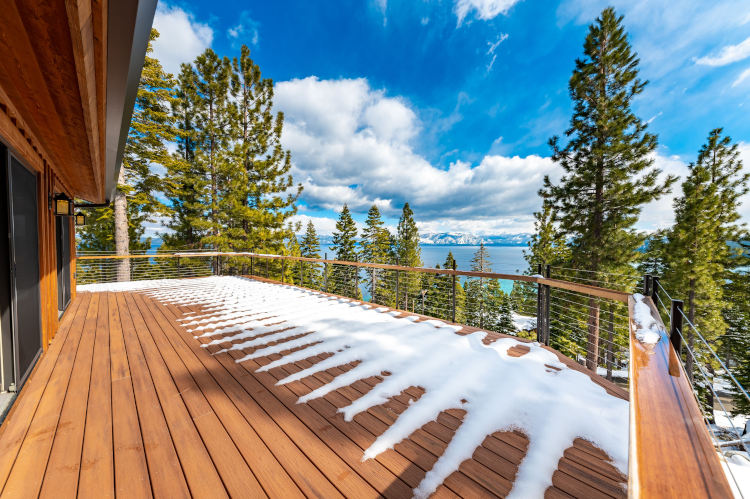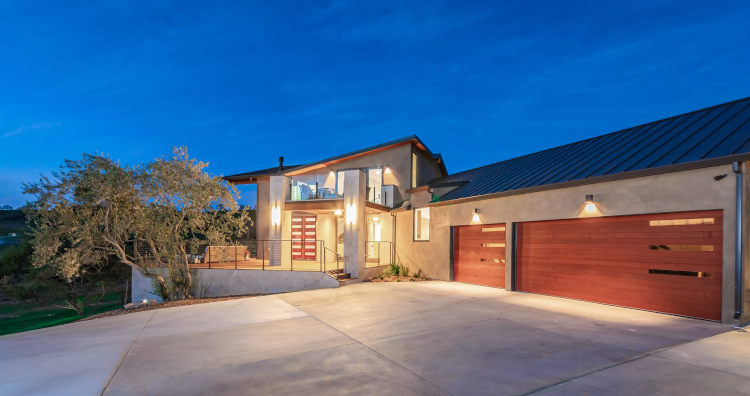Pacaso has only been in operation a little over a year, but the newcomer to the second home ownership market has already made quite a splash. The company offers an alternative to other shared ownership options and aims to make owning a second home available to a larger audience. SherpaReport caught up with Pacaso CEO and co-founder, Austin Allison, to learn more.
Company Founders
Allison and co-founder Spencer Rascoff (Pacaso’s chairman) were both executives at the real estate marketplace Zillow when they decided to branch out on their own. Both enjoyed the benefits of having a second home. After selling his company, dotloop, to Zillow, Allison and his wife had purchased a second home at Lake Tahoe. They knew that they were realizing a dream which many Americans share but one that most cannot bring to fruition.
Allison and Rascoff believed they had come up with a way to bring that dream to people by, in the words of Rascoff, democratizing the process. The concept was simple: let people buy shares in a second home, but not as a timeshare. Instead, they would be co-owners of the property. The company launched in October 2020 and quickly caught the eye of investors acquiring unicorn status (valuation of more than $1 billion) within just a few months, faster than any other startup.

The Pacaso Model of Co-ownership
Allison describes the idea behind Pacaso:
"There are 30 million second homes in the U.S. and Europe that sit unoccupied 10 or 11 months of the year. And there are millions of people who dream of owning a second home. Pacaso creates a marketplace around this, allowing people to buy shares of an amazing home, and experience true but hassle-free homeownership."
People can buy an eighth or a quarter or whatever larger fraction of a home best suits their needs. They then co-own that home in its entirety, not just the right to visit for two weeks of the year.
Owning a second home with a group of family members or friends is not a new concept. However, it can soon turn into a hassle with arguments over who is taking care of day-to-day management and so on. All too often, friendships can disintegrate, with one person wanting to sell their share, and the others unsure what to do. By investing in second home co-ownership with Pacaso, there are no delicate family relationships. Furthermore, Pacaso’s model helps manage the operations and finances of the property. Allison says that they support owners with LLC management services (a common practice for many who co-own second homes). This service “which includes managing the LLC legal and property details to create a seamless experience.”
For each home, Pacaso lines up local experts in property management, landscaping, home improvement, and so on. They then choose what Allison describes as “single-family homes with a wow factor… a mix of luxury and liveability with amenities like pools, beach access or views.”
How it works
Owners decide where they would like to have a second home, what their budget is, and how often they are likely to use it. Pacaso’s team then works with local realtors to find the ideal home. They also find and vet potential co-owners and set up an LLC specific to the particular property. Once the purchase is complete, Pacaso act as the LLC manager on behalf of the co-owners. The owners get to enjoy their home while Pacaso staff look after lawn care, scheduling, decorating, and more.
To balance scheduling, Pacaso uses its own special software that can learn an owner’s preferences. Allison explains:
"Our innovative scheduling software, SmartStay, is managed by a series of rules and algorithms in the Pacaso app. This enables owners to seamlessly book stays in their Pacaso two days to 24 months in advance. The system caps the number of advance and special date (i.e. holiday) reservations an owner can hold at one time. Each owner has access to advanced stays that fall on special dates (e.g., federal holidays). Over time, the SmartStay system will learn each owner’s stay preferences and make suggestions for dates they may enjoy."
Who is it for?
According to Allison, 75% of Americans with a household income over $150k dream of having a second home. Few achieve the goal because “it’s hard to rationalize buying a whole home that you’ll use less than 6 weeks a year”. Another factor that puts many off is the headache of renting the house out when you are not using it. Pacaso takes the stress out of second home ownership by taking care of those obstacles.
Since the start of the COVID-19 pandemic, Allison has noticed even more interest in second home ownership. He says, “People are looking to reorient their lives to the new work-from-home, school-from-home reality.” Through co-ownership, people can increase their purchasing power, buying a property that might otherwise be beyond their reach. Allison says, “It also empowers an entirely new sphere of buyers - those previously priced out of the market altogether - to become second home owners.”

The homes
Pacaso’s current listings include properties in a dozen markets, including Lake Tahoe, Napa Valley, Palm Springs, and Malibu. For instance, a 1/8 share in a magnificent $2.8 million, 5 bedroom mountain lodge in Lake Tahoe is priced at $441,000. The fee includes all closing costs, home upgrades, and service fees. A 3 bedroom luxury oceanfront property in La Jolla is on the market with an asking price of $8.25 million, or become a co-owner with a 1/8 share for $1.15 million. For these and other properties, a 1/8 ownership share affords you more than 40 nights a year, making it ideal for shorter getaways or an extended work-from-second-home period.
Future plans
Allison says that the company is focused on increasing the number of listing locations across the U.S. and promises that they will “be expanding to new markets in the central and east coast by the end of the year.”
Pacaso is an alternative to destination clubs or residence funds, which provide access to and sometimes ownership in multiple luxury vacation homes. The shared fractional ownership from Pacaso also is an alternative to private residence clubs, which are typically luxury resort condominium properties, as opposed to the individual free standing homes from Pacaso.

